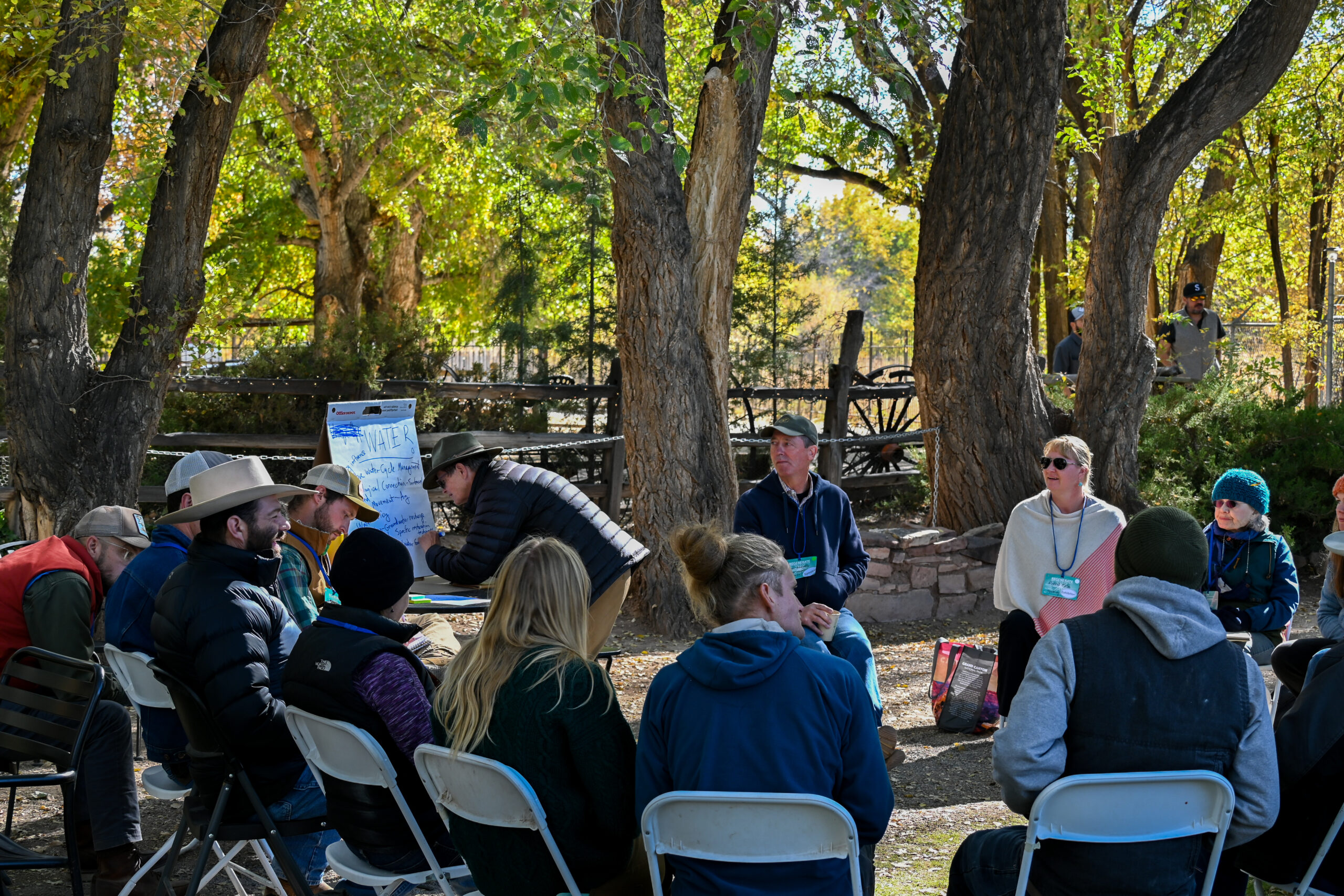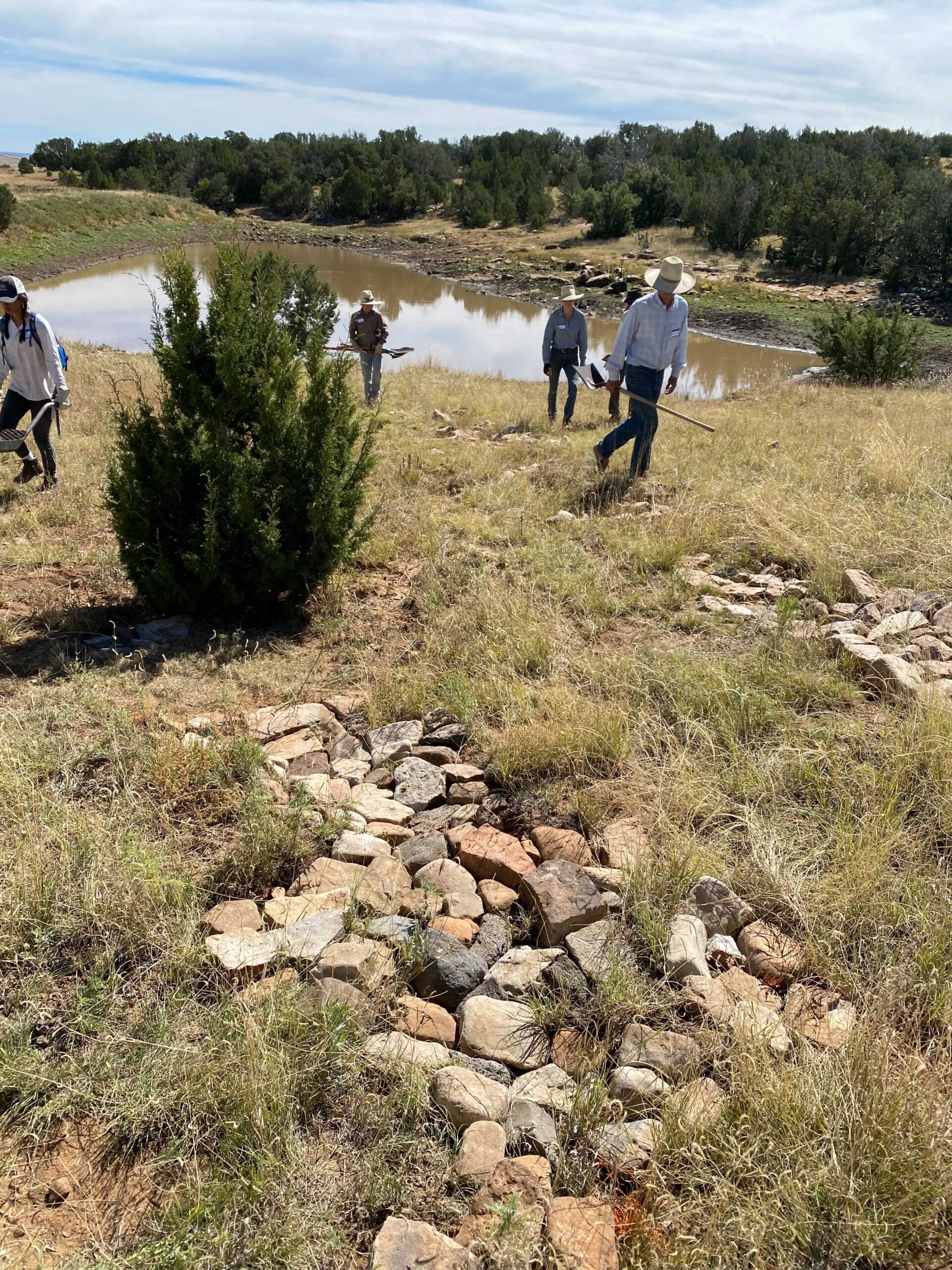
We invite you to contribute your energy and ideas to the conversation at REGENERATE 2024.
~ Innovating for a Resilient Future ~
Since the first humans began to use tools we have had a love affair with technology. Now, it seems to steal itself into every crack of our wakefulness, attaching to our bodies, our work, how we connect with one another, our ideas for the future. Sometimes it feels like an invader, changing our brain chemistry and making it harder to go outside and see the sun. Sometimes it feels like a liberator, offering ways for us to share our stories, ask for help, create communities across time and space.
As hunters and gatherers, as livestock managers, and as farmers tending fields, our human engagement with the land and animals has required innovation and adaptation. With the increased focus on regenerative agriculture, more people are interested in how to innovatively boost production, improve soil health and diversity, develop new markets, and a list of so many other tangible processes. But what is the role of data and technology in agriculture? How does technology advance our field, and what are the ways that it can cause harm? Do we trust artificial intelligence to gather data and use it for the greater good and how do we make sure data isn’t used as a weapon? How do we look to the technology that Indigenous communities have developed to expand our views of regenerative agriculture?
Farmers and ranchers are not new to the idea of gathering as much information about their crops, land, and livestock as they can. Water gets measured. Seed amounts get measured. How much input feed does it take to output a pound of meat? Some rely on new apps and platforms to keep track of these data points, while others might still be jotting notes down on paper or regular spreadsheets. We look for ways to make lives easier and more efficient, for technology to hold gigantic amounts of information so that our brains can focus on other things.
And while we live in a world that is replete with information, information creation is not necessarily knowledge creation. While the app may know the rainfall totals, it cannot know the embodied feeling of relief when the clouds open and life-giving water starts to fall. The app can tell you that three of your calves have died soon after birth and what that’s going to do for your bottom line, but it cannot hold compassion for your grief over the loss of an animal. There are deep wells of knowledge in our communities that technology will never be able to learn, and this generational and experiential knowledge will be critical in how we shape our agricultural systems.
Come join us at REGENERATE 2024, where you will engage with ranchers, farmers, conservationists, land managers, scientists, and thought leaders as we come together to share ideas and strengthen our network of innovative thinkers and doers. We look forward to hearing from those who are experimenting and gathering data to share and support conservation, regeneration, and community-building. We invite you to offer your experiences and join in the collective task of creating knowledge and wisdom to build a resilient future.

“Twenty plus years later, I still look forward to attending the annual conference–now called the REGENERATE Conference–of the Quivira Coalition, HMI and the American Grassfed Association. What a joy to reconnect with old friends and mentors and to be re-inspired to the work we all do on the land, especially by the younger folk who now lead us. The 2002 Quivira conference introduced me to the concept of regenerative management and provided the underpinning of my work as a rancher and producer. The principles of HMI solidified my practice and bottom line, and the early support of AGA was critical to our grassfed beef business. I am thrilled that the three now work together to broaden our work and outreach.”
